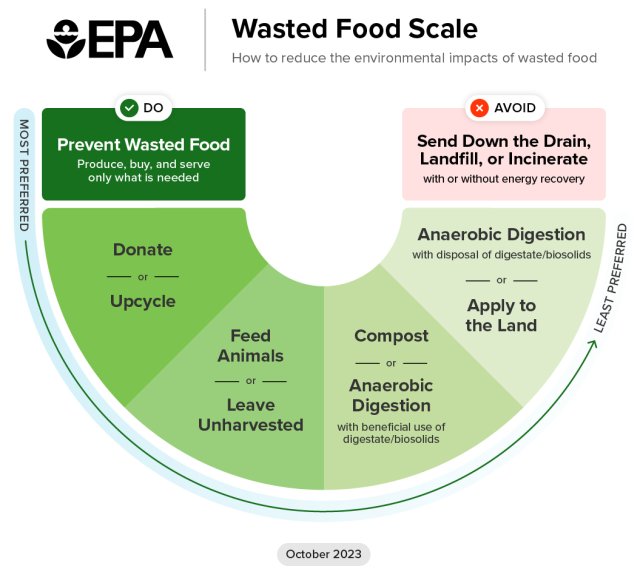Annual Public Hearing
Reducing the Impact of Food Waste on Air Quality and Climate Change
Tuesday April 16, 2024 • 9:30 a.m.
WE NEED YOUR INPUT ON HOW TO REDUCE FOOD WASTE AND CONTROL EMISSIONS RESULTING FROM FOOD DISPOSAL
Food waste is estimated to account for about one third of the food intended for human consumption in the United States. When food is discarded, all resources used in producing, processing, transporting, preparing, and storing are also wasted. Landfilling food waste exacerbates the climate change crisis due to significant methane, other GHGs, and air toxics emissions. Food waste contributes more methane emissions than other landfilled material because of its rapid degradation. From 1990-2020 methane emissions from landfilled food waste increased steadily by 295 percent. In 2020, landfilled food waste was responsible for emitting approximately 55mmt CO2e methane emissions based on a 100-year global warming potential. This is equivalent to the annual GHG emissions from 15 coal-fired power plants. An estimated 61 percent of methane generated by landfilled food becomes fugitive emissions. More needs to be done to eliminate food waste and significantly reduce or recapture gases emanating from landfills.
THE NEW JERSEY CLEAN AIR COUNCIL IS SEEKING SPECIFIC RECOMMENDATIONS ON THE FOLLOWING ISSUES:
- Policies,
- Best practices,
- Control technologies,
- Funding opportunities, etc. in each of the categories shown in the USEPA 2023 Wasted Food Scale.
Questions?
Contact George Berdomas at 609-940-5654 or via e-mail at George.Berdomas@dep.nj.gov.
WHO?
The New Jersey Clean Air Council
WHAT?
Annual Public Hearing
WHEN?
Tuesday, April 16 2024
9:30 a.m.
WHERE?
N.J. Dept. of Environmental Protection
401 E. State Street
Trenton, NJ 08625
QUESTIONS
Contact George Berdomas at 609-940-5654 or via e-mail at George.Berdomas@dep.nj.gov
ABOUT
The 2024 Clean Air Council public hearing will provide further understanding of the extent and impact of emissions from food waste disposal and landfilling and develop a series of recommendations to the Commissioner of NJDEP to improve air quality using waste reduction strategies and implementing state of the art control measures to eliminate or recapture GHG emissions.
Members of the public are encouraged to submit detailed written comments for incorporation into the hearing report. Written statements in Microsoft Word will be accepted until April 30, 2024 via email to George Berdomas.
